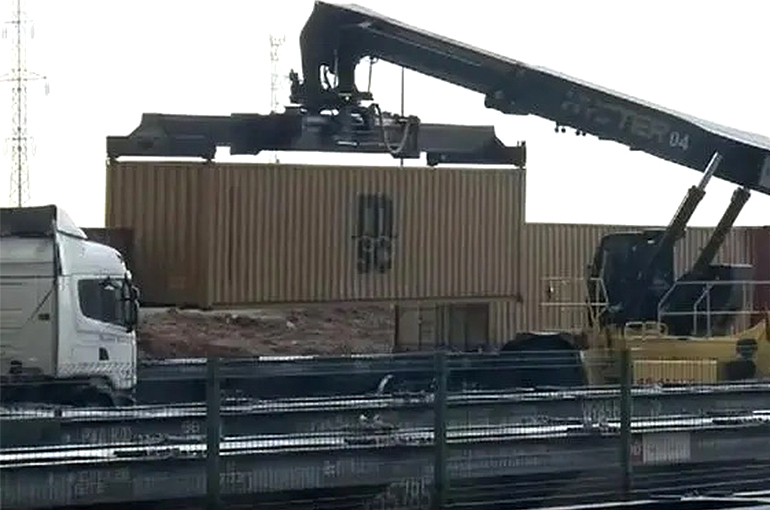 China, Russia Open New Arctic Express Trade Route
China, Russia Open New Arctic Express Trade Route(Yicai) July 18 -- China and Russia have launched the Arctic Express No. 1 rail-sea cargo service, with the Arctic shipping route potentially becoming a new channel for global trade amid climate change.
NewNew Shipping Line and Russia's Rosatom State Nuclear Energy opened the new service on July 5, the Chinese firm told Yicai.
Arctic Express No. 1 will transport cargo by rail from Moscow to the Russian port of Arkhangelsk from where it will be shipped across the Arctic and North Pacific oceans to ports on the west coat of China. The journey covers about 13,200 kilometers and takes 20 to 25 days.
NewNew Shipping Line handles container ship navigation and transportation, while Rosatom is responsible for piloting and escorting along the route. The NewNew Polar Bear, a Chinese cargo ship, used the Arctic route for the first time last July and has made seven voyages.
Some 2.13 million tons of cargo was taken through the Arctic route last year, according to Russian figures.
The new route has the advantages of low dependence on traditional shipping lanes and minimal congestion, NewNew Shipping Line’s Yuan Jing, a told Yicai, adding that it will have a big impact on global shipping strategy.
Compared with the traditional route through the Suez Canal, it is between 5,000 km and 8,000 km shorter and saves at least 20 days. It also has fewer ports along the way, no congestion, and avoids the current difficulties in the Red Sea region.
NewNew Shipping Line and Rosatom inked an agreement last month to build a fleet of ships that can ply the Arctic Express No. 1 route all year round. Five ARC7-class polar container vessels will be built initially, with the first going into operation in 2027. The deal will help China and Russia achieve normal shipping via the Arctic throughout the year, not just in the summer and fall.
The prospects for making a go of the Arctic route depend not only on technological breakthroughs, but also on subsequent commercial operations and supporting infrastructure, such as terminal facilities and railroads linking the terminals with final destinations, according to Yang Jie, a senior coordinator at the service center of China Communications and Transportation Association's International Train Consulting.
Editor: Martin Kadiev